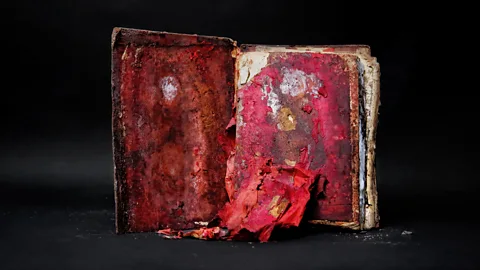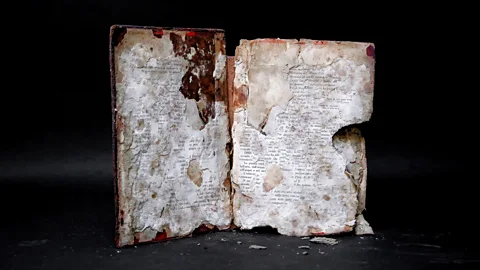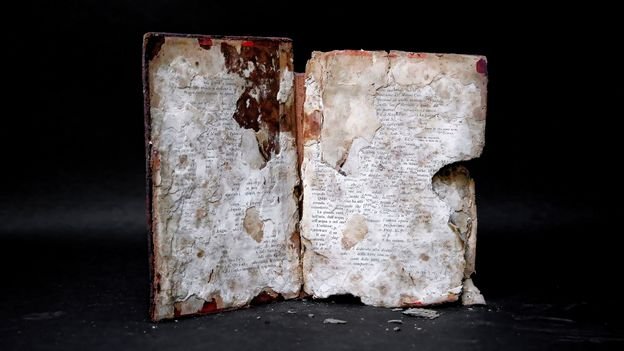Wearing rubber boots, Zelano waded from the train station through Strada Nova, which was still about 40cm (1ft 3in) underwater. She went to the house of a friend of a friend. The tide had retreated by the time she got there. “All sorts of objects, pieces of furniture, chairs, were piled up, like trash, everything was completely drenched,” she tells the BBC. As the homeowners were busy saving the salvageable, Zelano focused on their books, which struck her as beautiful in their decay and symbolism. One of the books from the house (pictured above) looks like “an archeological find from the Stone Age,” she says. “It doesn’t open anymore, it’s cemented.”
 Patrizia Zelano and Zamagni Arte, Rimini
Patrizia Zelano and Zamagni Arte, RiminiZelano decided that she needed to save more books. She called Lino Frizzo, a bookseller in Venice, whose store is aptly called Acqua Alta, “high water”, the Venetian name for floods. Frizzo recently told her that, because of the hectic activity of those days, he doesn’t remember her being there. Together with his employees, they worked non-stop to clean up and save the inventory. They gave Zelano books beyond repair. Most were from the early 1900s, which for Italian and Venetian standards is old but not antique. They were beautiful though, like this poetry anthology which had a lush red fabric cover. “An injured book”, says Zelano.
 Patrizia Zelano and Zamagni Arte, Rimini
Patrizia Zelano and Zamagni Arte, RiminiZelano took 40 books and put them in big black plastic bags. At 55 years of age, she was alone on this trip. “There was no way I could carry them all by myself, and it was hard to find people to help.” She stopped a gondoliere on the canal and convinced him to take her back to the station by gondola. “Some of the books, like this one, would crumble just at the touch of my hand,” she says. “You see the hole to the right.” She adds that this particular volume looks precious, like lace, and that one day she would love to explore the fantastical words created by the fragments of several pages pressed together.


